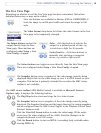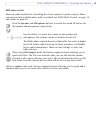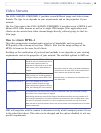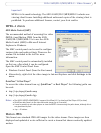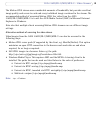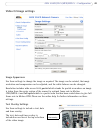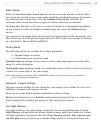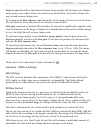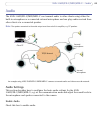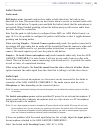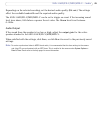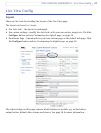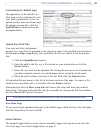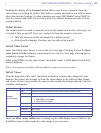
22
AXIS 216FD/FD-V/MFD/MFD-V - Configuration
Exposure priority defines the balance between image quality and the frame rate. Higher
image quality may reduce frame rate and increase motion blur. A prioritized frame rate
may instead increase image noise.
By increasing the Max exposure time the quality of the image will increase, but the frame
rate will decrease. There may also be an increase of motion blur.
Max gain, measured in decibels (dB), describes the amount of amplification applied to the
visual information in the image. A high level of amplification will provide viewable images
in very low light, but will increase image noise.
To prioritize image quality, choose Prioritize image quality from the drop-down box
Exposure priority, and lower the Max gain. If this does not produce the desired results,
increase the Max exposure time.
To instead prioritize frame rate, choose Prioritize frame rate from the drop-down box
Exposure priority and reduce the Max exposure time to e.g. 1/25s or 1/30s. The image
will darken considerably, but the frame rate will be maintained. To increase the image
brightness increase the Max gain, but this will also increase the amount of image noise.
Please refer to the online help for more information .
Advanced - MPEG-4 Settings
GOV Settings
The GOV structure describes the composition of the MPEG-4 video stream. Setting the
GOV-length to a high value saves considerably on bandwidth. The Cyclic refresh
parameter gives a smoother bit rate and can be useful if bandwidth is limited.
Bit Rate Control
Limiting the maximum bit rate is a good way of controlling the bandwidth used by the
MPEG-4 video stream. Leaving the Maximum bit rate as unlimited will provide
consistently good image quality, but at the expense of increased bandwidth usage
whenever there is more activity in the image. Limiting the bit rate to a defined value will
prevent excessive bandwidth usage, but images will be lost when the limit is exceeded.
Note that a maximum bit rate can be used for both variable and constant bit rates.
The bit rate type can be set as Variable Bit Rate (VBR) or Constant Bit Rate (CBR). VBR will
adjust the bit rate according to the images' complexity, thus using a lot of bandwidth for a
lot of activity in the image and less for lower activity in the monitored area.
CBR allows you to set a fixed Target bit rate that will consume a predictable amount of
bandwidth, and which will not change whatever happens in the image.



